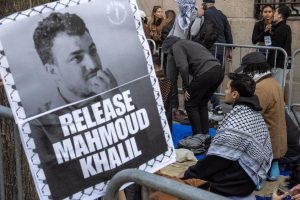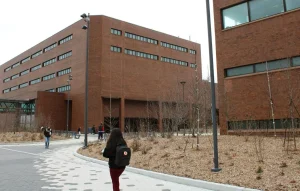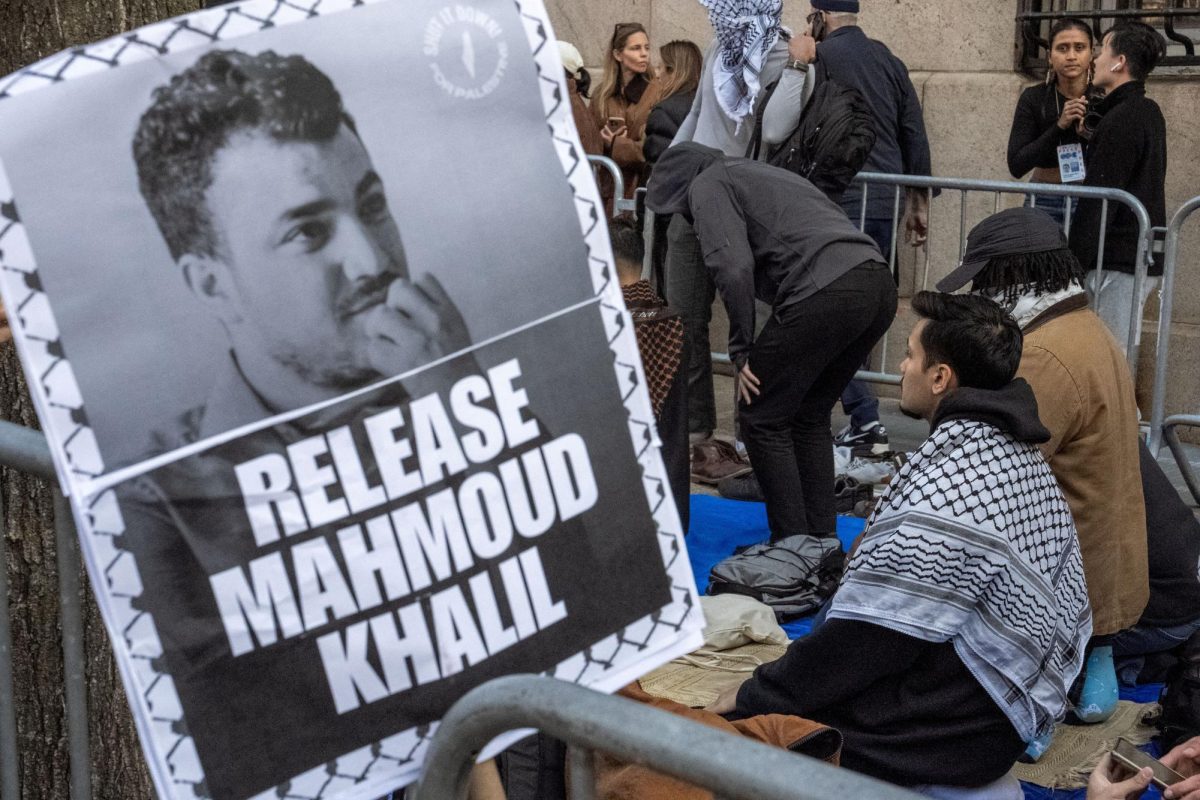The Trump administration cancelled over $400 million in federal grants to Columbia University March 7 in response to numerous pro-Palestinian demonstrations.
The Department of Education threatened to take action against Columbia March 3 if they did not enforce protections for Jewish students from antisemitism. Secretary of Education Linda McMahon spoke with the university’s interim president before the March 7 announcement, stating that “universities must comply with all federal antidiscrimination laws if they are going to receive federal funding.” Columbia also faces a federal investigation.
The university announced changes to its protest policies and disciplinary processes in a four-page letter published Friday. The changes largely mirror the DOE’s list of demands sent in a March 13 letter to the university, which officials called “a precondition for formal negotiations regarding Columbia University’s continued financial relationship with the United States government.”
It is unclear whether the Trump administration will lift the funding freeze in light of the changes.
The decision comes as part of a long list of actions against the university, which began as a result of protests over the war in Gaza. Columbia was also home to some of the first student encampments, in which students set up tents on school property to show their support for the Palestinian people and force university administration to act. During one of these encampments, the university called the New York Police Department, leading to the arrest of 109 students.
Higher institutions across the country adopted similar encampments in response to the arrests at Columbia. Protesters at Columbia and other universities have frequently been labeled antisemitic for their denouncement of Israel’s actions in Gaza, while others have been accused of sympathizing with the Oct. 7, 2023 terrorist attacks by Palestinian group Hamas.
Near the beginning of his term, Trump released an executive order titled “Additional Measures to Combat Anti-Semitism.” The Jan. 29 order reinforced an executive order issued by Trump during his first term, this time providing additional guidance regarding the aftermath of the Oct. 7 attacks. The Justice Department formed a task force Feb. 3 to further investigate antisemitism in schools.
“These attacks unleashed an unprecedented wave of vile anti-Semitic discrimination, vandalism, and violence against our citizens, especially in our schools and on our campuses. Jewish students have faced an unrelenting barrage of discrimination; denial of access to campus common areas and facilities, including libraries and classrooms; and intimidation, harassment, and physical threats and assault,” the order stated.
Trump created a post on his Truth Social account March 4, stating “All Federal Funding will STOP for any College, School, or University that allows illegal protests. Agitators will be imprisoned/or permanently sent back to the country from which they came. American students will be permanently expelled or, depending on on the crime, arrested.”
Shortly after this message, Columbia University student Mahmoud Khalil was detained and had his American visa revoked. According to the Associated Press, Immigration and Customs Enforcement agents entered Khalil’s campus apartment and “said they were acting on State Department orders to revoke Khalil’s student visa. Informed by the attorney that Khalil was in the United States as a permanent resident with a green card, the agent said they were revoking that instead.”
Khalil was active in university protests against Israel’s actions. Although his detainment has faced multiple legal challenges, Trump called his arrest “the first of many to come.”
Khalil’s detainment has caused an uproar across the country, particularly within student activist groups.
“It’s pretty enraging,” said Max Herschman, the vice president of UMass Boston’s Students for Justice in Palestine organization. “This is a top organizer at Columbia who has been arrested and threatened with deportation just for using free speech. It’s nerve-racking, but we’re not going to stop fighting.”
The DOE’s Office of Civil Rights sent letters to 60 universities March 10, stating similar federal funding restrictions to Columbia’s that could be put in place if the schools were found to not be in compliance with Title VI of the Civil Rights Act. Schools that were under investigation for complaints about antisemitism included Harvard University, Boston University and UMass Amherst.
UMass Boston’s SJP collaborated with similar groups at UMass Amherst and UMass Lowell to issue a statement demanding UMass administration protect students’ rights to free speech and release a condemnation of Columbia’s repression of protesters.
“Everyone in the Palestine student movement has already been facing investigation, just on a more clandestine, low-intensity level. They know who we are, there’s no doubt about that,” Herschman said. “We’re not belittling the danger, but we’re not letting it stop us or slow us down. Mahmoud Khalil would want us to keep fighting.”





